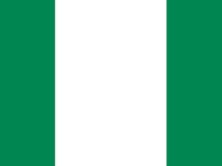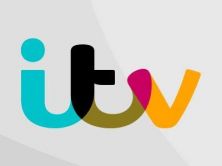
South African media company Avusa is developing a policy for anonymous sources. See above a screenshot of some of Avusa's media companies. (Credit: Avusa.co.za)
Earlier this week, iMediaEthics reported that South African newspaper The Herald was accused by a reader of using anonymous sources to report rumors. The newspaper published both the reader’s letter and its response last week on its website and in its print edition.
Heather Robertson, editor of The Herald, told iMediaEthics via e-mail that while she prefers to use named sources, politics sometimes makes it difficult for the South African newspaper. She again defended the newspaper’s story and use of anonymous sources. She also told us that the newspaper’s parent company, Avusa, is developing an anonymous source standard and included some of the future guidelines for the company.
Thabo Leshilo, the public editor for the newspaper’s parent company, Avusa, has been working on developing the policy, Robertson explained. “All the editors in the Avusa stable contributed to the policy i.e The Sunday Times, the Herald, the Daily Despatch, the Sowetan, The Sunday World and The Times,” Robertson explained in a follow-up e-mail.
Robertson, who has been working on the policy with Leshilo, told StinkyJournalism about some of the intended inclusions in the new anonymous source policy. The policy was based off the code used at The Sunday Times, where Robertson was deputy editor, she added.
For example, while ideally stories should be sourced on the record, stories should have “at least two independent on-the-record sources with personal knowledge of the facts, or three off-the-record sources with personal knowledge of the facts.”
“We use anonymous sources only when there is no other way to publish the story. Where it is unavoidable to use anonymous sources, we adhere to the following,” Robertson detailed.
Robertson sent iMediaEthics a draft for the intended code. Other guidelines for the newspaper will include expectations that:
- “Anonymous sources must have direct knowledge of the facts. Wherever possible they should provide evidence.”
- Independently confirm as much information as possible.
- Explain why the source is anonymous and what their relationship is. “Ideally we need to explain to our readers how close to the information the source is, and why we consider him/her to be reliable. “
- Be certain that the source doesn’t have a motive.
- The editor as well as the report must know the source’s identity and approve granting anonymity. “Ideally we need to explain to our readers how close to the information the source is, and why we consider him/her to be reliable. “
- Stories can’t be based on just one anonymous source.
- If a source is granted anonymity, the entire newspaper is held to that anonymity protection. However, if the source gives “dishonest or malicious” information, the editor – and only the editor – may label that a breach of contract and the anonymity may be revoked.
- Anonymous sources can’t be used for “gratuitous opinion, trivial comment or speculation, or when they make personal or partisan attacks on others. “
- “Under no circumstances do we mislead our readers by disguising the number of sources we have, or referring to “other officials/sources” when we have already quoted their on-the-record comments.”
- Wikipedia, Facebook, Twitter and other newspapers aren’t sources, but “research tools.” Further, “reports based solely on something said by someone on Facebook are particularly problematic.”
- Leshilo, the public editor, will occasionally spot check the reasons for granting anonymity.
iMediaEthics has also written to Leshilo, the public editor, to ask when the code would be official and how it will apply to the Avusa news outlets. We’ll update with any response.





Comments Terms and Conditions